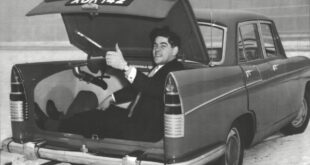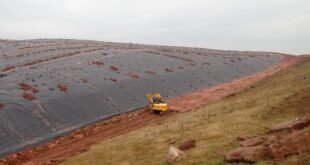It was a Renaissance masterpiece, but in Sheffield something about Il Tagliapanni, Giovanni Moroni’s meticulous oil painting of a tailor at his cutting table, rankled with Thomas Wilkinson. His equipment was the wrong size.
Saturday, 15th August 2020, 6:00 am
In a city full of scissormakers, Wilkinson was a master cutler. He studied the cutting shears on Moroni’s 16th century canvas and marvelled at how anyone could handle so clumsy an implement.
The pair he designed and patented to replace them are the type we have been using ever since.
His “sidebent” design, with cranked handles tilting upwards, could accommodated fingers in one loop and a thumb in the other, and glide through cloth without snagging it. The design won him fame far beyond his factory in New Church Street and earned him a warrant from Queen Victoria and Prince Albert.
It has taken two-and-a-half centuries for his old firm to come up with an improvement.
William Whiteley and Sons, a 12th generation family firm now based out on the Holbrook Industrial Estate south-east of the city centre, is the last industrial scissormaker in Britain and the oldest in the western world. Its founder was Wilkinson’s rival until Whiteleys bought him out in 1875.
Its drop-forged products are used to cut everything from mailbags to Savile Row suits, and range in size from three-and-a-half to 13 inches. But after years of selling them to wholesalers and factories, it decided to cut out a niche in the retail market.
“When we decided to open a website, the success quite surprised us,” said Sally Ward (née Whiteley), a director of the firm and a descendant of its founder. It led, she said, to another 21st century innovation – a “kickstarter” campaign to fund a new design of scissor, faithful to Wilkinson’s original yet lighter and more ergonomic.
The result was the Exo range, which went on sale in time for Whiteley’s 260th anniversary.
“There a lot of lady tailors now, and they got really fed up with the traditional tailors’ shears because they were so big and heavy,” said Mrs Ward, who designed the new pair with her husband, Jeremy, Whiteleys’ lead engineer.
They are not the only members of the firm’s 18-strong team whose family histories run with scissors. Andy Colton, the principal craftsman, has been with Whiteleys for 46 years and remembers popping in to see his family there before he was apprenticed.
But it was Mrs Ward’s 19th century ancestor, the clay pipe-smoking Elizabeth Whiteley, who masterminded the takeover of Wilkinson’s and is most associated with the company’s early success.
“She was a sharp cookie,” said Mrs Ward, who went into the family business after an earlier career as a chemistry teacher.
“She wore clogs and she travelled everywhere, all over Ireland, selling products.
“And it wasn’t unusual. There were hundreds of scissor companies in Sheffield and absolutely loads of women running factories here.”
It costs £192 to buy a pair of Exo shears, but the firm’s principal retail market remains in more conventional domestic and craft scissors.
It also continues to make the heavy duty cutters it designed for the Royal Mail to dissuade its staff from using Stanley knives to cut open sacks. However, modernisation in the sorting offices has reduced the demand from 50,000 pairs a year to around 8,000.
The patent on Thomas Wilkinson’s sidebent scissors ran out long ago and his design has been copied the world over.
But few are hand-produced in the traditional way, honed from rough and ready blanks stamped out of bars of carbon steel at a drop forge plant, then dressed, drilled and hardened before being polished, ground and finally assembled by specialists known as “putter togethers” or just putters.
Whiteleys makes up to 180,000 pairs a year, including some which are strong enough to cut through bullet-proof vests. The firm predates the industrial revolution, having begun life in White Lea, on the outskirts of Sheffield, using water power to turn the grinding wheels.
Editor’s note: first and foremost – and rarely have I written down these words with more sincerity – I hope this finds you well.
Almost certainly you are here because you value the quality and the integrity of the journalism produced by The Yorkshire Post’s journalists – almost all of which live alongside you in Yorkshire, spending the wages they earn with Yorkshire businesses – who last year took this title to the industry watchdog’s Most Trusted Newspaper in Britain accolade.
And that is why I must make an urgent request of you: as advertising revenue declines, your support becomes evermore crucial to the maintenance of the journalistic standards expected of The Yorkshire Post. If you can, safely, please buy a paper or take up a subscription. We want to continue to make you proud of Yorkshire’s National Newspaper but we are going to need your help.
Postal subscription copies can be ordered by calling 0330 4030066 or by emailing subscriptions@jpimedia.co.uk. Vouchers, to be exchanged at retail sales outlets – our newsagents need you, too – can be subscribed to by contacting subscriptions on 0330 1235950 or by visiting www.localsubsplus.co.uk where you should select The Yorkshire Post from the list of titles available.
If you want to help right now, download our tablet app from the App / Play Stores. Every contribution you make helps to provide this county with the best regional journalism in the country.
Source link


